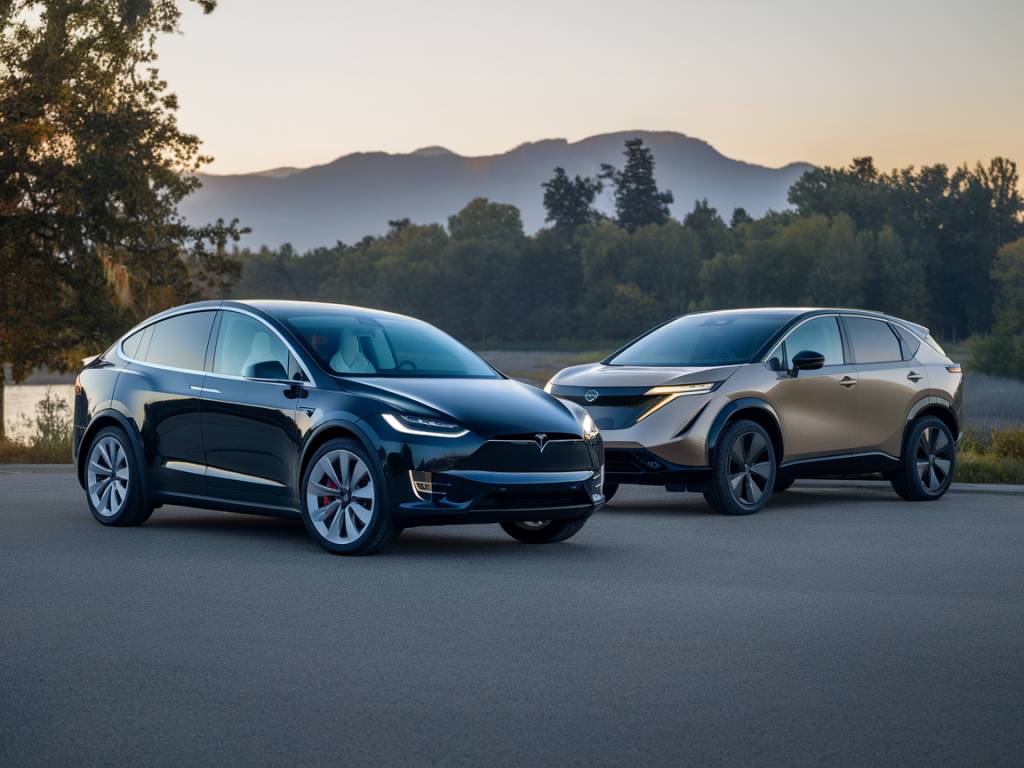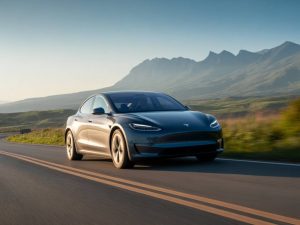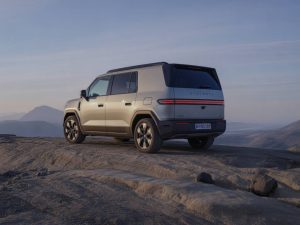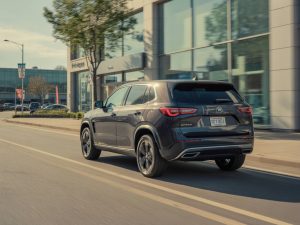The evolution of electric suvs: from early models to 2024’s best options

the evolution of electric suvs: from early models to 2024’s best options
The automotive industry has been undergoing a profound transformation, especially in the realm of Electric SUVs (Sport Utility Vehicles). From the inception of early models to the sophisticated options available in 2024, Electric SUVs have seen significant advancements. This article delves into the evolution of these vehicles, exploring various milestones, technologies, and models that have shaped their development.
Early Models: The Beginning of Electric SUVs
The concept of Electric SUVs dates back to the early 1990s when automakers began experimenting with electric powertrains. One of the earliest examples was the 1997 General Motors EV1, though not precisely an SUV, it laid the groundwork for future developments in electric vehicles.
By the early 2000s, advancements in battery technology began to make Electric SUVs more viable. The Tesla Roadster, released in 2008, was another significant milestone. Although it was a sports car, it demonstrated the potential of electric vehicles (EVs) in mainstream markets and spurred interest in electric powertrains for larger vehicles, including SUVs.
Technological Innovations Driving the Evolution
The evolution of Electric SUVs has been propelled by several key technological innovations:
- Battery Technology: Improvements in lithium-ion batteries have significantly increased the range and efficiency of electric vehicles. From early models that struggled to achieve 100 miles on a single charge, modern Electric SUVs now boast ranges exceeding 300 miles.
- Charging Infrastructure: The expansion of charging networks, particularly fast-charging stations, has alleviated range anxiety, making Electric SUVs more practical for everyday use and long-distance travel.
- Powertrain Efficiency: Advances in electric motors and power electronics have enhanced performance, resulting in quicker acceleration and a more enjoyable driving experience.
- Autonomous Driving: Integration of advanced driver-assistance systems (ADAS) and autonomous driving capabilities has added a layer of convenience and safety to Electric SUVs.
High-Profile Models Paving the Way
Several high-profile models have been instrumental in shaping the Electric SUV market:
Tesla Model X
The Tesla Model X, launched in 2015, has been a game-changer in the Electric SUV segment. Known for its impressive range, cutting-edge technology, and unique falcon-wing doors, the Model X set a high standard for electric SUVs and captured consumer interest globally.
Jaguar I-PACE
Introduced in 2018, the Jaguar I-PACE was one of the first Electric SUVs from a traditional luxury car manufacturer. It combined a sleek design with impressive performance, garnering several awards, including the 2019 World Car of the Year.
Audi e-tron
The Audi e-tron debuted in 2019, offering a luxurious electric SUV option with advanced features and a comfortable interior. It marked Audi’s serious entry into the electric vehicle market, emphasizing the potential for electric powertrains in luxury SUVs.
The Market in 2024: Best Electric SUVs
As we look at the options available in 2024, several Electric SUVs stand out due to their range, performance, features, and value. Here are some of the best options for consumers:
Tesla Model Y
The Tesla Model Y has continued to gain popularity due to its impressive range, advanced technology, and versatile design. With over 300 miles of range, a spacious interior, and Tesla’s Full Self-Driving (FSD) capabilities, the Model Y is a leading choice in the Electric SUV market.
Ford Mustang Mach-E
The Ford Mustang Mach-E has carved out a niche with its sporty performance and iconic nameplate. Its various trim levels cater to different needs, from the efficient Standard Range to the high-performance GT, making it an attractive option for a wide range of consumers.
Volkswagen ID.4
The Volkswagen ID.4 offers a blend of affordability, practicality, and advanced technology. With a starting price lower than many competitors, it’s an excellent entry point for those new to Electric SUVs without sacrificing range or features.
Rivian R1S
Rivian’s R1S has generated buzz with its off-road capabilities and adventure-ready design. Featuring a robust battery pack, quad-motor drive, and a luxurious interior, the R1S appeals to outdoor enthusiasts looking for an electric alternative without compromising on capability.
Lucid Gravity
Lucid Motors, known for their luxury sedans, is entering the SUV market with the Lucid Gravity. Promising top-tier luxury, exceptional range, and cutting-edge technology, the Gravity aims to redefine what consumers expect from an Electric SUV.
Consumer Considerations When Buying an Electric SUV
When purchasing an Electric SUV, there are several factors consumers should consider:
Range and Charging
The vehicle’s range on a single charge remains one of the most critical factors. Consumers should evaluate their daily driving needs and ensure the vehicle’s range comfortably meets those requirements. Availability and convenience of charging infrastructure, both at home and on the go, are also crucial considerations.
Performance and Driving Experience
Electric SUVs offer various performance levels, from everyday efficiency to exhilarating acceleration. Test driving different models can help consumers understand what driving experience they prefer, whether it’s smooth and quiet or sporty and dynamic.
Features and Technology
Modern Electric SUVs come equipped with a plethora of features, from advanced infotainment systems to autonomous driving capabilities. Consumers should consider which features are most important to them, such as superior audio systems, navigation, or driver-assistance technologies.
Price and Incentives
Price remains a significant factor in the decision-making process. Electric SUVs can be more expensive than their gasoline counterparts, but federal and state incentives can help offset the cost. Consumers should research available incentives to understand the potential savings.
In summary, the journey of Electric SUVs from niche novelties to mainstream choices is a testament to the rapid advancements in automotive technology. As 2024 unfolds, the market offers a diverse array of options catering to different preferences, needs, and budgets, making it an exciting time for both enthusiasts and new adopters of electric vehicles.





